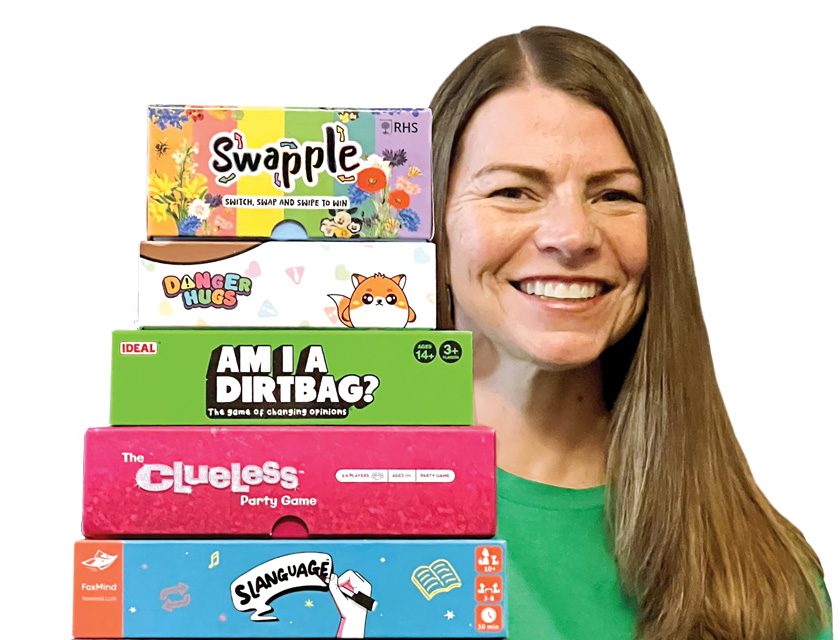
A catchy name or slogan can enhance marketing, branding and sales—but also confuse and offend
BY WILLIAM SEIDEL
We earthlings make it hard to communicate, but language is the best we have. With over 7,000 different languages in 196 countries, it’s not easy to communicate.
Language is instrumental for marketing, branding and sales. Having the right message can make a success; having the wrong message can cause failure. The examples, names and language in this
article are common phrases, real businesses and actual campaigns.
There is contradicting language and statements, such as Oscar Wilde saying, “Life is much too important to be taken seriously.” And there are oxymorons that juxtapose opposite meanings like bittersweet, an original copy and resident alien.
Words and phrases that self-contradict may be rhetorical, add humor or illustrate a point. But this does not mean it is a good name for a product or a business.
Our language and communications are inconsistent, inaccurate and often contradictory. Some things in English just don’t make sense: When you transport it by car, it is a shipment—but by ship it is cargo.
You have fingertips but no toetips. You can tiptoe but can’t tipfinger.
We take pride in combining words to mean the opposite: jumbo shrimp, plastic silverware, old news. We drive on parkways and park on driveways. Good grief sounds much better than bad grief.
We unconditionally accept that apartments are not apart; they are all together. They are actually “togetherments.”
Catchy and funny examples
Does catchy and funny matter? It sure does! The real question is, does it attract business, or repel it?
A tongue-in-cheek name may be cute or memorable, but is it enough to establish repeat sales?
It can work when it’s done right. “Thyme and Thyme Again” is a clever play on words and a positive business name for an herb and spice catering business. “Sure Lock Homes” implies home security with the trustworthy association with Sherlock Holmes.
A variety of “Lord of the Wings” restaurants tried to capitalize on the movie’s success. Most failed, except for one at Ohio State and a
cooking rub product.
Some business names may work for local markets, such as Joe’s Bar & Drill, a dental office in California wine country serving complementary wine. It has a great practice but is unlikely to do well elsewhere.
The product name Icy Hot® confronts the confusion of using hot or cold for topical pain relief. The ad agency, Terri Sandy, calls it Contrast Therapy. This can create curiosity to know more, which can persuade people to pick it up.
The arts have great leeway when using contradictions. “A Hard Day’s Night,” “The Sounds of Silence” and “Hello Goodbye” create a playful contradiction. And it certainly works for movies such as “True Lies,” “You Only Live Twice” and “Back to the Future.”
And let’s not forget Shakespeare, who coined “sweet sorrow.”
Clear distortion
Doublespeak is the George Orwell word for intentional distortion to disguise or reverse the meaning. He may be more relevant today in the era of news that isn’t real news, and alternative facts.
Doublespeak is used to make something bad sound better, such as saying “downsizing” instead of firing staff, or claiming “negative growth” for company losses.
And it is not garbage—it’s “sanitary landfill.” But is it really sanitary?
The military is notorious for doublespeak like “servicing the target” instead of dropping bombs; “collateral damage” instead of multiple fatalities; and “enhanced interrogation” instead of torture.
Even the well accepted term “civil war” combines the meanings of courteous and polite with hostile conflict.
Lost in translation
In the United States, 42 million people speak Spanish at home. If your name, brand or message does not translate well, you are eliminating a sizable part of the market and may be offending them.
The 1984 Coors beer campaign, “Turn It Loose,” means “suffer from diarrhea” in Spanish. Nova means “star” in Spanish, but when Chevrolet introduced it, the company learned that it sounds like “no va”—which means “no go!”
The campaign “Come Alive With the Pepsi Generation,” translated into Chinese, means “Pepsi brings your ancestors back from the grave.”
To “table an item” in America means to set it aside until later. In the United Kingdom, it means to actively consider an item.
IKEA introduced the Fartfull workbench, because it means speedy in Swedish. International marketing must consider the social implications.
Avoid the negative
Catchy does not always mean good.
“Passmore Gas & Propane” and “Stubbs Prosthetics & Orthotics” may get a laugh but may also leave an offensive or negative impression.
Is it clever to name your chair store the “Shack of Sit”?
“A Salt & Battery” fish and chips restaurant is a play on a crime. “Curl Up and Dye” hair salon is memorable, but dark humor can be morbid.
Despite these factors, a name in poor taste can sometimes make it! There are at least five independent “Master Bait & Tackle” stores and several online that have traction with fisherman. The name is enough to bring in customers. Hats and T-shirts are big sellers.
Language manipulation
The name can also break it!
I had a client with an excellent fish deboning product that stripped the bones, spine, ribs and tail off the fish with one quick flip of the wrist. The inventor spent a fortune on a professional infomercial and deeply invested in the name that no network would allow: The Wunder
Boner.
After all failed, he came to us. We structured two media deals,
got it online, found new funding but only limited sales and no distribution because of the name.
So, command your message! Cute names may get a laugh but are often short-lived. Clarity is better than levity, and brevity is better than more.
The best and safest is a simple message that needs no explanation.
The best marketing doesn’t feel like marketing. This often takes the talents of an experienced wordsmith. Think Marketing!



